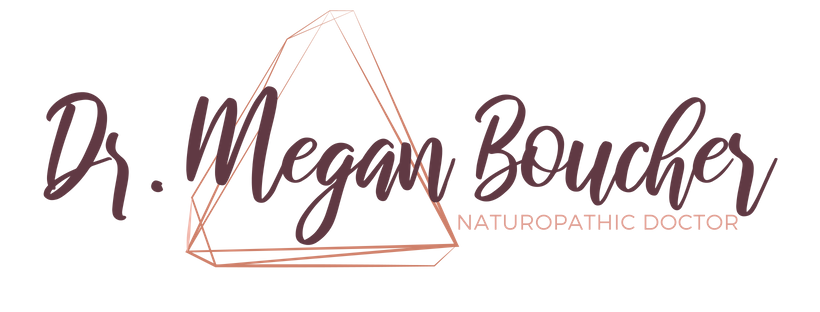You didn’t read that wrong. That’s right. I said the EIGHT blood tests for thyroid function assessment that you need to have run.
“Now hold on”, you think. “My doctor only runs TWO blood tests for thyroid function – TSH and T4. What am I missing??”
Six other blood tests. That’s what you’re missing.
Yes, TSH and T4 are important in the big picture of thyroid health, but without the other 6, MANY thyroid conditions (and other reasons for your symptoms) often go undiagnosed. So you could be feeling like crap, wondering what’s going on because your thyroid is “normal” according to your doctor.
Alright, let’s get to it. Here are the EIGHT MOST IMPORTANT blood tests you need to have run in order to assess proper thyroid function.
1. Thyroid Stimulating Hormone (TSH)
This one is commonly run and is a decent indicator of how hard your thyroid is working. TSH is released from your pituitary gland (in your brain) and acts to stimulate the thyroid (creative name, isn’t it?) to produce thyroid hormone. By itself, TSH doesn’t actually tell us a whole lot. It could fall within the “normal” reference range and you could still have thyroid dysfunction.
2. Free T4 (fT4)
This is another lab that is often run by doctors. T4 is the inactive thyroid hormone that is released from your thyroid in response to TSH. By measuring FREE T4, we can see how much is floating around in your bloodstream. Since this hormone is considered “inactive”, its levels don’t tell us a whole lot in relation to your symptoms. However, if fT4 is run in combination with fT3, it can tell us quite a bit!
3. Free T3 (fT3)
Free T3 is the ACTIVE thyroid hormone and is produced in the body by a conversion from T4. This hormone is not often run because it has a very short half life, meaning it breaks down/is used quickly after it is made. However, it is still SUPER important for determining how your thyroid is working AND how your body is responding. When run with fT4, it tells us a lot about how your body is converting T4 to T3.
4. Reverse T3 (rT3)
This is unfortunately rarely run in the medical community. Reverse T3 is another hormone that is produced by the conversion of T4, just like T3 is. However, rT3 is an INACTIVE form of T3 (essentially non-usable). Running rT3 can tell us a lot about what is happening to T4 if T3 levels are abnormal. When your body is converting T4 into rT3 instead of fT3, it can lead to symptoms of hypothyroidism (since your body doesn’t actually have adequate levels of the active thyroid hormone!)
5. Antibodies (Anti-TPO, Anti-TG)
The autoimmune disease Hashimoto’s is the MOST COMMON cause of a low functioning thyroid. So why is this test not run EVERY. SINGLE. TIME someone is diagnosed with hypothyroidism?? I don’t know. But it seriously should be. High levels of antibodies indicate an autoimmune process, meaning the course of treatment (from a Naturopathic standpoint) is much different than other types of hypothyroidism. This is one of the most important blood tests for thyroid assessment in my opinion.
6. Vitamin D
Although not directly related to thyroid function, Vitamin D plays a crucial role in autoimmune disease and inflammation. If your hypothyroidism is caused by Hashimoto’s, knowing your vitamin D levels becomes very important for determining how much vitamin D you should be supplementing with. Vitamin D has been studied with positive results in the control of Hashimoto’s by reducing antibody levels in women already on Levothyroxine (Synthroid). (1) In addition, over 90% of patients with Hashimoto’s were found to have significantly lower vitamin D levels than those without! (2)
7. Vitamin B12
A deficiency in vitamin B12 will make you feel like crap even if you don’t have a thyroid condition! When you have both… Well, it is highly likely that your energy is in the dumps. Having hypothyroidism actually impacts your ability to absorb B12, which is why it is a common deficiency in hypothyroid patients. (3) Symptoms of B12 deficiency include low energy, cold intolerance, brain fog and poor concentration, numbness and tingling, depression… Sounds a lot like the symptoms of hypothyroidism, doesn’t it? So if your thyroid is being managed, yet you are still experiencing symptoms, this is one vitamin I highly recommend getting tested.
8. Ferritin/Iron
Ferritin is considered a “storage form” of iron – so it does not directly tell us how much iron is in your body, rather how much you have “set aside”. That being said, if ferritin is low, symptoms such as low energy, cold intolerance, hair loss, and brain fog often occur (do you see where I’m going here??) It is important to note, however, that ferritin is an acute phase reactant – meaning that if there is inflammation in the body, your ferritin may be falsely elevated. By also testing for anemia (by testing iron, iron saturation, hemoglobin, and other blood markers), we get a better picture of how much iron your body has and is actually using. Our thyroid actually needs adequate levels of iron in order to properly produce T4 and T3!
Well there you have it. The most important blood tests for thyroid assessment.
Want to explore your thyroid function a little deeper? Check out my Contact Page to see how you can get in touch with me
References
1. https://www.ncbi.nlm.nih.gov/pubmed/28073128

